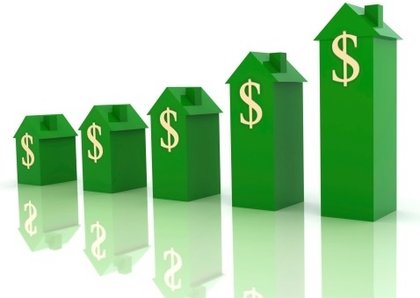Asking prices exceeded rents for the second month in a row in the Trulia Price Monitor, with prices up in 98 of the nation’s 100 largest metro areas.
It was another banner month for asking prices in May, with prices for the month rising faster than the rate of asking rents, according to the latest Trulia Price Monitor.
Based on an extensive study of all the listings on its sites, the Trulia Price monitor found that asking prices shot up 9.5 percent in May, compared to just a 2.3 percent increase for asking rents.
Trulia Price Monitor – Asking Prices Exceeding Rates
Indeed, it’s a rather stunning about-face for the U.S. housing market, one that was defined by soaring rents and fledgling home-price increases just a year ago. Other key findings from the Trulia Price Monitor included:
- From April to May, asking prices were up 1.1 percent, and from the first to the second quarter, prices rose 4.0 percent.
- Ninety-eight of the nation’s 100 largest metropolitan areas saw asking prices increase from May 2012, and from the first quarter, 94 have seen increases.
- Though rents did increase in most of the nation’s largest metros, the increases paled in comparison to the asking-price increases; indeed, the 2.3-percent year-ovear-year increase was 75 percent less than that of asking prices!
The Affordability Gap in the U.S. Housing Market
Another aspect of the housing market that Trulia’s research looked into was the affordability gap, and how some of the nation’s most expensive housing markets saw the strongest increase in asking prices in May. In Honolulu, for instance, where 74 percent of the average income is needed to pay monthly mortgage costs, asking prices were up nearly 13 percent in May, while in San Francisco, where 55 percent of income is needed, they were up 19.6 percent.
Here in Chicago, the situation was similar, though Trulia focused on the Windy City’s rental markets, which are among the strongest in the nation right now.
In Chicago, asking rents rose 5 percent year-over-year in May, which was good for the fifth largest increase in the nation. And though rents in Chicago remain relatively affordable compared to other large cities, it still requires 37 percent of an average wage to cover monthly rental costs, which makes Chicago the 11th costliest rental market in the nation. And as we reported just earlier today, Chicago’s suburban markets has seen aggressive rent increases as well.

